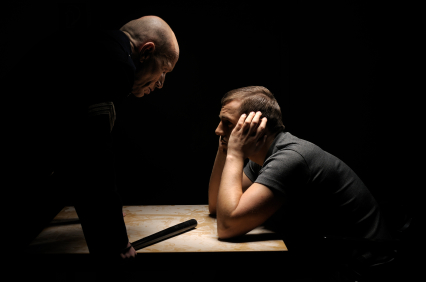BKV case: The prosecution and the "ungroovies" defendants
After the hearings of the BKV’s defendants the
prosecution rejected the statements which were about the coercions and that
this is a concept trial. Homonnai János prosecutor defended long against the „Jewish
sayings” (in Hungarian we have a word „zsidózás” which means that they used the
Jewish word as a bad word, as a discrimination) and against the drugging of H.
Éva, but these charges weren’t against them, they were against the guards in
the jail.
The hearing
started with the reading of the – partly renounced – testimony of H. Éva. The
former press person of Hagyó partly renounced her testimony in Kecskemét, which
she said after her arrest. The reason of that is because H. Éva said, for that
testimony she said those things because she was separated from her family, they
asked questions which were directed and it was under coercion.
H. Éva
spent half a year in pretrial detention, during this time according to her report
the investigators continually and directly told her to make confessions against
Hagyó Miklós and Puch László, but she couldn’t satisfied their request in an
„established and proved (with evidences) way”, ever so she wanted to see her
family so much.
After the
reading of H. Éva’s investigation testimony a few defendant observed that. They
said that from H. Éva’s testimony in court and her not renounced testimony it’s
clear that the press person did her job in the reality at the BKV and she
didn’t give any order in the name of Hagyó Miklós to the leaders of the BKV.
Lelovics Ottó the former professional communication person of Hagyó Miklós
showed to the court a BKK’s calendar of 2013 with he wanted to prove that these
kinds of outlays are attendant for the normal functioning during this day and
it doesn’t counts as a crime.
(Source: stand-up-hirek.blog.hu)
In the end
of the hearing the prosecution made an unusual long, a before wrote observation
in general for the defendants testimonies about the coercions. Homonnai János
prosecution said that they just cannot say anything of the accusations about
the coercions, concept process, and humiliation and against the investigation.
He noted that the defendants has right to tell them the penalty what they had
in the process but there is no connection in the proof what they lived through.
Homonnai János in wondrously mentioned the part of H. Éva’s testimony where she
is talking about that they drugged her, they refused from her the breakfast
because of her religion and also they told her to „clean it Jewish!” when they
throw her personal stuff mixed with trash. However these charges in every count
were against the employees in the jail from the part of H. Éva, the prosecution
rejected in their own name the accusations of the „reminiscent of the 50’s”.
The prosecution also rejected that they made coercions, however Homonnai added
that because a process like this is kind of coercion than the people can live
it like this without routine.
The
prosecutor in his speech defended Szívós Mária, Constitutional Judge. He said
that in the case of the defendants, 30 judges decided about coercion provision,
so to say that because of this Szívós Mária was elected as a Constitutional
Judge is absurd. Homonnai didn’t say anything that Szívós Mária was the one who
(in the case of a few defendants) aggravation and uphold the coercion
provisions, moreover, she brought a few defendants back to jail after months of
their testimonies.
Source: http://www.nepszava.hu/articles/article.php?id=616184
Original:
BKV-per: az ügyészség és a "rutintalan" vádlottak
A BKV-vádlottak
meghallgatásának végeztével az ügyészség visszautasította a nyomozást ért,
kényszervallatást és koncepciós eljárást emlegető vallomásokban foglaltakat.
Homonnai János ügyész elsősorban a zsidózás és H. Éva begyógyszerezése miatt
védekezett hosszan, ám ezen vádak nem nekik, hanem a börtönőröknek szóltak.
A tárgyalás H. Éva – részben visszavont – nyomozati
vallomásainak felolvasásával kezdődött. Hagyó egykori sajtósa azon vallomásait
vonta vissza Kecskeméten, amelyek megtételére már letartóztatása után került
sor. Ennek okát H. Éva több vádlotthoz hasonlóan úgy indokolta, hogy azok
megtételére családjától elszakítva, irányított kérdések feltételével,
kényszervallatás során került sor.
H. Éva fél évet töltött előzetes letartóztatásban, ez idő
alatt saját beszámolója szerint a nyomozók folyamatosan, irányítottan kértek
terhelő vallomást Hagyó Miklósra és Puch Lászlóra, de kérésüknek „megalapozottan
és bizonyítékokkal alátámasztható módon” nem tudott eleget tenni, bármennyire
is szerette volna viszontlátni családját.
H. Éva nyomozati vallomásainak felolvasása után több vádlott
észrevételezte az elhangzottakat. Jelezték, H. Éva bíróság előtt tett, ill.
vissza nem vont nyomozati vallomásaiból is kitűnik, hogy a sajtós ténylegesen
elvégezte munkáját a BKV-nál, és nem adott utasítást Hagyó Miklós nevében a
közlekedési cég vezetőinek. Lelovics Ottó, Hagyó Miklós egykori kommunikációs
szakembere bemutatott a bíróságnak egy 2013-as BKK-s naptárat is, amellyel azt
kívánta bizonyítani, hogy ezek a jellegű kiadások a mai napig a normális
működés velejárói, nem bűncselekmények.
(Forrás: stand-up-hirek.blog.hu)
A tárgyalás végén az ügyészség szokatlanul hosszú, előre
megírt, általános észrevételt tett a vádlottak kényszervallatásokról szóló,
egybehangzó beszámolóira. Homonnai János ügyész elmondta, hogy a koncepciós
eljárást, kényszervallatást, megaláztatásokat emlegető, nyomozást illető
vádakat nem hagyhatják szó nélkül. Megjegyezte, hogy a vádlottaknak joguk van
beszámolni az őket ért, az eljárásból fakadó hátrányokról, de annak a
bizonyításhoz nincs köze, hogy mit éltek át. Homonnai János meglepő módon
többször felemlegette H. Éva vallomásának azon részét, amelyben arról beszélt, hogy
a börtönben tudtán kívül begyógyszerezték, vallása miatt megtagadták tőle a
reggelit, ill. azt mondták neki, hogy „takaríts zsidó”, mikor személyes
tárgyait szeméttel összekeverve elé szórták. Bár ezek a vádak minden esetben a
börtönben dolgozókat érték H. Éva részéről, az ügyészség saját nevében
utasította vissza az „50-es éveket idéző” vádakat. A vádhatóság azt is
visszautasította, hogy kényszervallattak volna, bár azt Homonnai hozzátette,
mivel egy ilyen eljárás kényszerítő jellegű, rutintalanul így is meg lehet élni
azt.
Az ügyész beszédében védelmébe vette Szívós Mária
alkotmánybírót is. Elmondta, hogy a vádlottak esetében közel 30 bíró hozott
döntést kényszerintézkedésekről, így azt állítani, hogy emiatt nevezték ki
alkotmánybírónak Szívóst, abszurd dolog. Homonnai arra nem tért ki, hogy Szívós
Mária volt az, aki több vádlott esetében szigorította és tartotta fenn a
szigorúbb kényszerintézkedést, sőt, több vádlottat a nyomozás későbbi
szakaszában, hónapokkal a vallomástételük után vitetett vissza a börtönbe.





